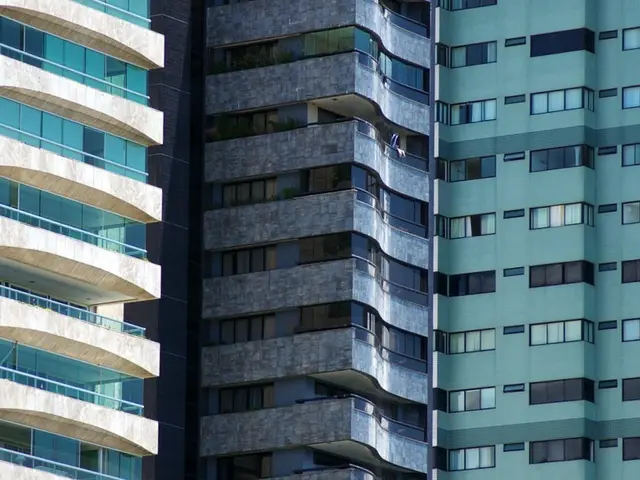Ibstock's Financial Woes: Higher Costs and Flat Selling Prices Slam Profitability
Stock prices of brick manufacturer Ibstock decline due to increased expenses stemming from the housing market recovery.
Investors were left sweating on Wednesday as Ibstock, the UK's largest brick manufacturer, reported a sharp decline in profits due to escalating costs and weaker selling prices. The FTSE 250 firm's shares plummeted over 14% following the grim update.
Initially, Ibstock had been bullish, investing heavily in expanding capacity at its clay factories. This move was in anticipation of a robust recovery in the UK housing market, which the company believed would drive substantial revenue growth. However, the expansion has come with a significant cost: higher-than-expected fixed costs and lower average selling prices, as the company grapples to maintain profits in a more competitive market.
Sadly for Ibstock, its attempts to boost productivity and operational efficiency at the factories have been a double-edged sword – ramping up faster than expected but also leading to increased expenses. Furthermore, the average selling prices have taken a hit due to changes in the sales mix, with customers opting for lower-priced products. As a result, earnings before interest, tax, depreciation, and amortization (EBITDA) is forecasted to range between £77 million and £82 million, a far cry from analysts' expectations of £92 million.
This costly expansion has left Ibstock scrambling to recover its lost ground, especially with signs of a recovery in the UK housing market on the horizon. Despite these challenges, the company remains optimistic about its key organic growth projects and its ability to support high demand for newbuild housing in the UK.
However, analysts have expressed concerns about the company’s profitability in the face of cost pressures and a competitive market environment. Aarin Chiekrie, an equity analyst at Hargreaves Lansdown, noted that "operations won't be as efficient as [Ibstock] would like until demand and production ramp up further, and profitability is getting squeezed in the meantime."
Related Articles:
- Materials firm in £187m US expansion amid UK construction troubles
- How to invest in Phoenix Effect recovery shares for a lucrative bounce-back
Sources
- "Ibstock issues profit warning as bricks division chalks up problems" The Times
- "Ibstock to cut annual earnings after costs rise and sales mix hits prices" Financial Times
- "Ibstock issues profit warning in brick-marketed competition" City A.M.
- "Ibstock issues profit warning over rising costs, lower prices" Reuters
- "Investors react as Ibstock issues profit warning over brick shortage" This is Money
Further Reading:
- Impact on Ibstock Shareholders: The company's cost inflation issues, coupled with weakened selling prices, have led to a sharp decline in earnings and a substantial drop in its share price. In light of this news, concerned investors might be interested in diversifying their portfolios, potentially turning to recovery shares from firms capitalizing on the 'Phoenix Effect' following the pandemic.
- Understanding the Brick-Making Process: Query (User): How are bricks manufactured, and what factors could affect their prices? Assistance (Assistant): Bricks are typically made using clay or shale, which are mixed with water and various additives before being formed into rectangular blocks. The drying and firing process accounts for a substantial portion of the costs associated with brick production. A shortage of raw materials, increased energy prices, or increased demand could all potentially contribute to price increases for bricks.
- Investors may consider diversifying their portfolios, turning to recovery shares in the stock market, such as those from businesses embracing the 'Phoenix Effect' following the pandemic, given the financial challenges faced by Ibstock.
- The real-estate industry, specifically brick manufacturers like Ibstock, have been impacted by a more competitive market environment, leading to lower average selling prices, as observed in the case of Ibstock's brick production.
- Investors might look to other sectors for returns, like the growing mortgage industry or investing in stocks, as escalating costs and weakened selling prices in the brick manufacturing business take a toll on profitability, such as Ibstock's current situation.
- The financial difficulties encountered by Ibstock and other firms in the brick-making industry underscore the importance of understanding various business sectors and their associated risks to make informed decisions in the investing world.








